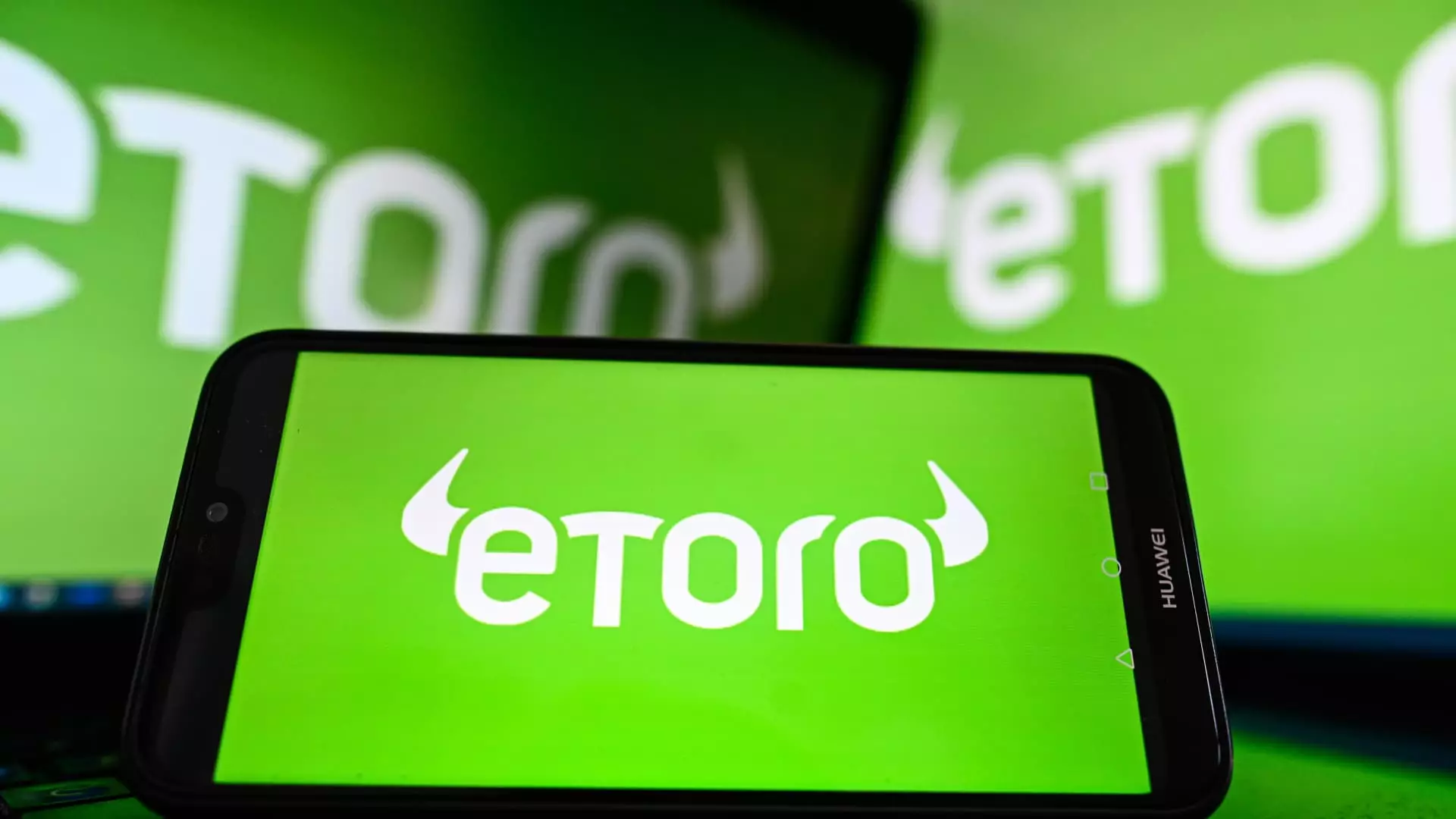In a bold maneuver that has turned heads on both Wall Street and beyond, eToro, the Israel-based stock brokerage known for its innovative foray into cryptocurrency, has set its initial public offering (IPO) price at an ambitious $52 per share. This strategic decision aims to harness a market that has, despite recent fluctuations, shown renewed appetite for new entries. The $310 million raised from the sale of nearly 6 million shares places eToro’s valuation at a staggering $4.2 billion and signals a potential renaissance for a platform that has battled the storms of market volatility and shifting economic tides. Yet, rolling into this venture also means facing a slew of uncertainties—and for investors, the stakes could not be higher.
The IPO landscape, particularly in recent years, has been a turbulent one, teetering on the precipice of optimism and dread, primarily influenced by macroeconomic factors. After a lengthy drought exacerbated by inflation and rising interest rates, the market briefly breathed a sigh of relief with the return of President Donald Trump to the White House in January. However, this glimmer of hope quickly dimmed with tariff uncertainties, leaving many upcoming IPOs in limbo.
The Resurrection of IPO Enthusiasm
With eToro’s announcement, there is an unspoken camaraderie in the IPO arena—companies like Klarna, digital lender, and StubHub, the ticket reseller, are quietly looking to reignite investor confidence. If eToro’s Nasdaq debut under the ticker symbol ETOR succeeds, it may serve as a barometer of market risk tolerance moving forward. The company is awaiting the results of its initial offering with bated breath, knowing it might ultimately determine whether a renaissance is indeed on the horizon for IPOs of its ilk.
The increasing volume of digital enterprises attempting to go public, like Hinge Health and Chime, adds another layer of complexity to the landscape. eToro’s return to the IPO fray is particularly intriguing given its previous abandonment of plans to go public via a SPAC merger. After all, the tech-heavy nature of the trading platform leaves it uniquely positioned to either ride the waves of investors’ confidence or be swept under by public skepticism as it has been before.
Crypto: The Double-Edged Sword
While eToro has positioned itself as a main player in the fintech landscape, its burgeoning crypto business presents both an attractive revenue source and a high-stakes gamble. With revenue from cryptoassets reportedly tripling to over $12 million in 2024, it’s clear that eToro is keen to capitalize on the growing demand for digital currencies. Yet, investors must question the sustainability of this strategy. With crypto markets famously volatile and often subject to regulatory scrutiny, eToro’s deepening reliance on this revenue stream could also become its Achilles’ heel.
Notably, eToro has substantiated its move into crypto by indicating that around one-quarter of its net trading contributions came from this segment last year—a significant leap from just 10% the prior year. One must venture to ask whether this trajectory is merely a momentary spike or the commencement of a paradigm shift in trading behaviors. Such uncertainties add a layer of risk that may deter traditional investors who are wary of the unpredictable nature of cryptocurrencies.
BlackRock’s Interest: A Vote of Confidence or a Red Flag?
Adding an intriguing layer to the IPO narrative, eToro has revealed that investment giant BlackRock has expressed interest in acquiring $100 million in shares at the IPO price. This endorsement from a firm with BlackRock’s stature could be construed as a substantial vote of confidence, suggesting that some institutional investors are willing to roll the dice. Nonetheless, does this signal genuine belief in eToro’s prospects, or is it merely a calculated risk typical of an institution seeking to diversify its portfolio?
Moreover, eToro’s simultaneous offering of 5 million shares from existing investors raises alarms. The optics of insiders opting to liquidate portions of their holdings often sends mixed messages—while it can be interpreted as a strategy to capitalize on short-term gains, it may also cast doubt on their long-term confidence in the platform’s trajectory.
In the volatile world of public markets, eToro’s IPO represents a microcosm of the broader struggles between optimism and caution. The company’s aspirations might light the path for others, yet the ever-present risks remind us that the road to prosperity is fraught with pitfalls. As eToro ventures into this brave new era, the unfolding story will undoubtedly serve as a quintessential case study for the evolving dynamics of modern finance.

